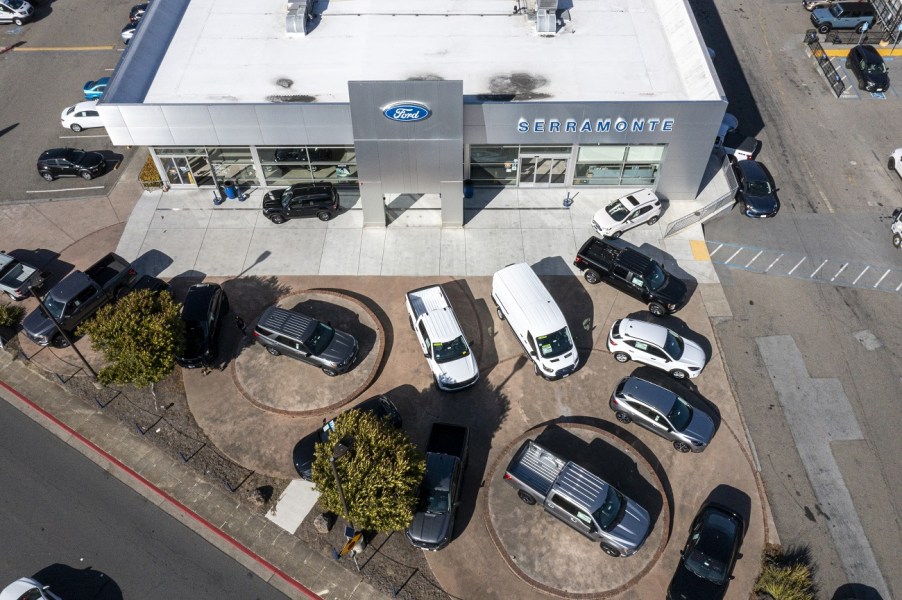
Why New Car Prices Should Have You Buy Your Car or SUV in the Fall
Almost anyone who’s been to a new car dealer in the last two years has seen the empty parking lot spaces. That’s a sign that new car inventories are low. Over the last two years, manufacturers have had to contend with both high demand and a lack of inventories thanks to chip shortages and more. However, that looks to be easing, and a new report says to wait for this fall to buy if you want a new car or truck with a lower price. Here’s why new car prices should make you wait to buy.
Wait until the fall to buy a new car or SUV
The average new car price is now $47,681. According to the Wall Street Journal, that’s the highest that’s ever been. While new car price markups reached a few hundred dollars over MSRP, new truck and SUV prices were up as much as $1,200. Dealers can markup prices because demand is high. However, new models come out in the fall, so the best time to buy is when dealers are trying to clear out inventory.
Another factor helping to lower the price of a car or truck is the price of a loan. According to the WSJ, the average rate for a new car was 6.5% at the end of 2022. That’s up from 4.1% in 2021. That means cars cost more, so demand is dropping a bit.
New car prices are dropping for cars and trucks
Last November, the average new car price was $47,681, the highest that has ever been. However, according to J.P. Morgan, even used cars are seeing an increase. In fact, the average used car costs 42.5% more today than it did just three years ago. But, J.P. Morgan expects new car prices to drop 2.5% to 5% by 2023. Used car prices should drop 10% to 20%, but you’ll have to wait.
Don’t expect prices to plummet suddenly, however. The longer you wait, the better a deal you’ll probably find this year.
Electric car prices are more affected

Electric vehicles are affected more than gas-powered cars. According to The Street, key materials in batteries saw a huge price spike. Those metals, like lithium, nickel, and cobalt that keep a battery charged are commodities whose prices go up with demand. That means that as EVs get more popular, the prices of the raw materials used to make them go up, too.
Kelly Blue Book reports that EVs cost about $18,000 more than a comparable gas-powered car. The batteries and other tech add to the price. However, an EV can save you $5,000 to $10,000 annually on gas, making them a good longer-term purchase if you can afford the up-front cost.
That’s one reason the $7,500 EV tax credit was added to the Inflation Reduction Act. The Act has several price caps in place to encourage manufacturers to make lower-priced electric cars and EVs. The price cap for electric cars to qualify is $55,000, while that number is $88,000 for electric SUVs. But, they have to be made in America, like the Ford F-150 Lightning or even a VW ID.4 SUV, which are made in Tennessee.
Although new car prices are high at the moment, your patience may be rewarded later in the year.



